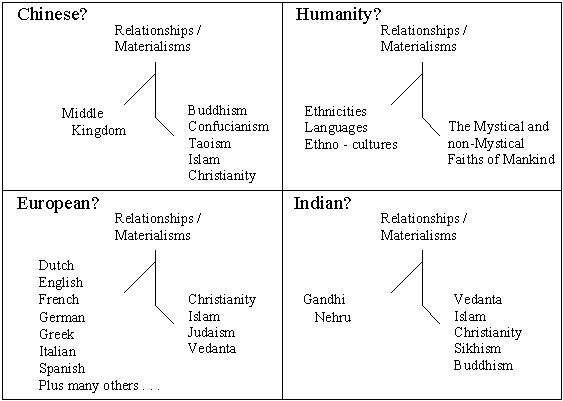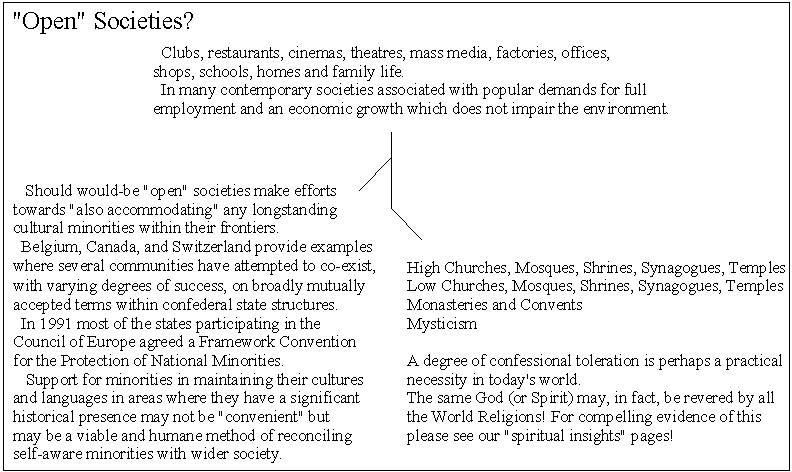![[philosophy, footnotes, plato]](philosophy.gif)
footnote, western, philosophy, whitehead, european
philosophy, footnotes to plato![[philosophy, footnotes, plato]](philosophy.gif) footnote, western, philosophy, whitehead, european |
| Home > Philosophy Index > Philosophy - " a series of footnotes to Plato " |
|
| A.N. Whitehead (Alfred North Whitehead) was a widely influential twentieth
century philosopher and mathematician. He is responsible for
coining the following celebrated quote about Plato's enduring influence. The safest general characterization of the European philosophical tradition is that it consists of a series of footnotes to Plato. Alfred North Whitehead, Process and Reality, p. 39 [Free Press, 1979]; To put this quote in its wider context:- ...So far as concerns philosophy only a selected group can be explicitly mentioned. There is no point in endeavouring to force the interpretations of divergent philosophers into a vague agreement. What is important is that the scheme of interpretation here adopted can claim for each of its main positions the express authority of one, or the other, of some supreme master of thought - Plato, Aristotle, Descartes, Locke, Hume, Kant. But ultimately nothing rests on authority; the final court of appeal is intrinsic reasonableness. The safest general characterization of the European philosophical tradition is that it consists of a series of footnotes to Plato. I do not mean the systematic scheme of thought which scholars have doubtfully extracted from his writings. I allude to the wealth of general ideas scattered through them. His personal endowments, his wide opportunities for experience at a great period of civilization, his inheritance of an intellectual tradition not yet stiffened by excessive systematization, have made his writing an inexhaustible mine of suggestion. ... In one of his major works Plato asks:-
"...can we possibly refuse to admit that there exist in each of us the same generic parts and characteristics as are found in the state? For I presume
the state has not received them from any other source. It would be ridiculous to imagine that the presence of the spirited element in cities is not
to be traced to individuals, wherever this character is imputed to the people, as it is to the natives of Thrace, and Scythia, and generally speaking,
of the northern countries; or the love of knowledge, which would be chiefly attributed to our own country; or the love of riches, which people
would especially connect with the Phoenicians and the Egyptians...
|
|

"...man is a bundle of relations, a knot of roots,
whose flower and fruitage is the world..."
Ralph Waldo Emerson

"Whatever concept one may hold, from a metaphysical point of view, concerning the freedom of the will, certainly its appearances, which are human actions, like every other natural event, are determined by universal laws. However obscure their causes, history, which is concerned with narrating these appearances, permits us to hope that if we attend to the play of freedom of the human will in the large, we may be able to discern a regular movement in it, and that what seems complex and chaotic in the single individual may be seen from the standpoint of the human race as a whole to be a steady and progressive though slow evolution of its original endowment."
Immanuel Kant
Idea for a Universal History from a Cosmopolitan Point of View (1784)
Or to quote Emerson, from his famous Essay ~ History more fully:-
In old Rome the public roads beginning at the Forum proceeded north, south, east, west, to the centre of every province of the empire, making each market-town of Persia, Spain, and Britain pervious to the soldiers of the capital: so out of the human heart go, as it were, highways to the heart of every object in nature, to reduce it under the dominion of man. A man is a bundle of relations, a knot of roots, whose flower and fruitage is the world. His faculties refer to natures out of him, and predict the world he is to inhabit, as the fins of the fish foreshow that water exists, or the wings of an eagle in the egg presuppose air. He cannot live without a world.
![]()
Charles Darwin is my greatest scientific hero. Philosophers are fond of saying that all philosophy is a series of footnotes to Plato. I sincerely hope that is not the case, because it doesn't say much for philosophy. A far better case could be made that all of modern biology is a series of footnotes to Darwin. And that would be a genuine compliment to the science of biology. Every biologist treads in Darwin's footsteps and, in all humility, none of us could do better than to follow his example.
Excerpted from the autobiographical "An Appetite for Wonder" by Richard Dawkins
Start of
philosophy - footnotes to plato
quote from A.N. Whitehead